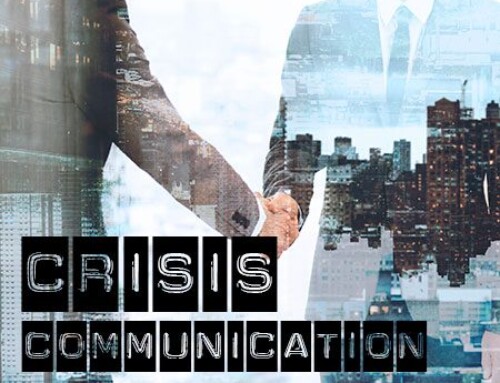02/08/2024
The ongoing tensions in the Middle East cast a long shadow over the European business landscape, presenting a complex web of challenges and potential disruptions. As the specter of escalation looms, C-suite executives across the continent find themselves grappling with a myriad of concerns that threaten to upend established operations, strain supply chains, and reshape market dynamics. Let's delve into the key issues at stake for European companies and outline a series of strategic "firewalls" designed to safeguard business interests in these turbulent times.
KEY CONCERNS FOR EUROPEAN COMPANIES
The first and perhaps most pressing concern for European businesses is the looming specter of energy market volatility. The Middle East, long a crucial supplier of oil and gas to Europe, stands at the heart of this issue. An escalation in regional conflicts could trigger a cascade of supply disruptions, sending shockwaves through global energy markets. The ripple effects of such a scenario would be far-reaching, manifesting in sharp price spikes that could dramatically inflate production costs across a wide swath of industries. Moreover, such a crisis could serve as a catalyst, accelerating the already growing push towards renewable energy sources – a shift that, while potentially beneficial in the long term, could pose significant short-term challenges for companies heavily reliant on traditional energy paradigms.
Equally concerning are the potential disruptions to supply chains that European companies have painstakingly built over decades. Many firms rely heavily on Middle Eastern partners or transit routes to maintain their operations. An escalation of conflict in the region could lead to a domino effect of logistical nightmares. The Suez Canal, a vital artery of global trade, could face delays or even blockages, throwing carefully calibrated supply schedules into disarray. Sourcing raw materials or components from the region could become an exercise in uncertainty, with reliability and consistency – the bedrock of efficient supply chain management – suddenly in question. Furthermore, the specter of increased shipping and insurance costs looms large, threatening to erode profit margins and force difficult decisions about pricing and operational structure.
Market access restrictions represent another significant worry for European businesses with interests in the Middle East. The complex and often unpredictable nature of geopolitical alignments means that European firms may suddenly find themselves navigating a minefield of trade barriers or sanctions affecting Middle Eastern markets. Consumer demand in affected regions could plummet, leaving companies scrambling to recoup investments and maintain revenue streams. Perhaps most insidiously, there's the very real risk of reputational damage for firms continuing to operate in conflict zones, as stakeholders and consumers increasingly demand ethical and socially responsible business practices.
In our increasingly digital world, the threat of cybersecurity breaches cannot be overstated. Heightened geopolitical tensions often correlate with a spike in cyber attacks, and the current situation in the Middle East is no exception. European companies must brace themselves for the possibility of state-sponsored hacking attempts, which could target everything from sensitive corporate data to critical infrastructure. The potential for disruption is enormous, ranging from temporary operational setbacks to catastrophic data breaches that could compromise intellectual property and erode customer trust. In an era where data is often described as the new oil, protecting these digital assets becomes as crucial as securing physical resources.
STRATEGIC "FIREWALLS" FOR RISK MITIGATION
In the face of these multifaceted challenges, European companies are not without recourse. A series of strategic "firewalls" can be implemented to mitigate risks and ensure business continuity. The first of these centers on the diversification of energy sources. Forward-thinking companies are already investing heavily in renewable energy projects within Europe, seeking to reduce their reliance on volatile Middle Eastern supplies. This approach not only hedges against short-term disruptions but also positions firms favorably in the long-term shift towards sustainable energy. Concurrently, exploring long-term contracts with alternative suppliers, such as U.S. liquefied natural gas producers, can provide a buffer against regional instabilities. Implementing comprehensive energy efficiency measures across operations serves a dual purpose: reducing overall consumption and demonstrating a commitment to sustainability that resonates with increasingly eco-conscious consumers and investors.
Building supply chain resilience is another critical firewall against potential disruptions. This begins with a thorough mapping and stress-testing of existing supply chains to identify vulnerabilities. Armed with this knowledge, companies can proactively develop relationships with alternative suppliers in more stable regions, creating a diversified network that can withstand localized shocks. Where feasible, investing in localized production capabilities can further insulate operations from global disruptions. This approach not only mitigates risk but can also yield benefits in terms of reduced transportation costs and improved response times to market demands.
Market expansion and hedging strategies form another crucial line of defense. Accelerating expansion into emerging markets outside the conflict zone can help offset potential losses in Middle Eastern markets. This might involve developing products tailored specifically to European and North American consumers, capitalizing on cultural affinities and stable regulatory environments. Financial instruments can play a key role here, with savvy use of currency hedging mechanisms protecting against the volatility often associated with geopolitical turmoil.
In the digital realm, enhanced cybersecurity measures are non-negotiable. This goes beyond merely implementing robust protocols; it requires fostering a company-wide culture of digital vigilance. Regular employee training should be complemented by investments in cutting-edge threat detection and response systems. Collaboration with government agencies and industry peers on threat intelligence can create a multiplier effect, enhancing the collective ability to identify and neutralize emerging threats before they can cause significant harm.
OPPORTUNITIES AMID UNCERTAINTY
While the challenges posed by Middle Eastern instability are significant, they also present opportunities for forward-thinking European companies. The accelerated push towards green technology, catalyzed by energy security concerns, opens doors for firms to establish themselves as global leaders in the transition away from fossil fuels. Those who invest heavily in R&D now may find themselves at the forefront of a new energy paradigm, with the potential for substantial long-term rewards.
The imperative to create more resilient and transparent supply chains is driving a wave of digital transformation across industries. Companies that embrace technologies like AI and blockchain to revolutionize their operations may emerge from this period of uncertainty with a significant competitive advantage. These technologies offer the promise of real-time supply chain visibility, predictive analytics for risk management, and unprecedented levels of traceability – all increasingly vital in a volatile global business environment.
Strategic partnerships, when carefully cultivated, can turn potential liabilities into assets. By forming alliances with stable Middle Eastern countries and companies, European firms can maintain a foothold in the region while mitigating risks. These partnerships might take various forms, from joint ventures in neutral territories to collaborative R&D projects that leverage the strengths of both parties.
The complex risk landscape itself presents an opportunity for innovation. European companies with expertise in risk assessment and management may find new revenue streams by offering their services to other businesses struggling to navigate these uncertain waters. Developing cutting-edge risk assessment tools and methodologies could position a firm as a thought leader in this increasingly crucial field.
Lastly, the drive to reduce dependency on Middle Eastern energy and trade routes is likely to spur large-scale infrastructure development within Europe. From renewable energy projects to new transportation corridors, these initiatives represent significant opportunities for companies across a range of sectors. Firms that position themselves early as key players in these developments may secure lucrative long-term contracts and strengthen their domestic market positions.
THINK IN SCENARIOS
The evolving geopolitical landscape in the Middle East presents European companies with a complex set of challenges and opportunities. Success in this environment will require a delicate balance of risk mitigation and strategic opportunism. By implementing robust "firewalls" against potential disruptions while simultaneously pursuing emerging opportunities, businesses can not only weather the current storms but emerge stronger and more competitive in the global marketplace.
For C-suite executives, the key lies in fostering a corporate culture that values resilience, innovation, and ethical operation in equal measure. This means preparing for multiple scenarios, remaining agile in the face of rapid change, and never losing sight of the long-term sustainability goals that will define success in the coming decades. Those who can navigate these turbulent waters with foresight and flexibility will be well-positioned to lead their industries into a new era of global business.



